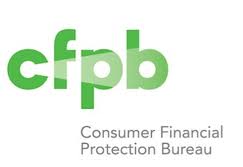The U.S. Court of Appeals for the Ninth Circuit recently held that the trustee of a California deed of trust securing a real estate loan was not a “debt collector” under the federal Fair Debt Collection Practices Act, because the trustee was not attempting to collect money from the borrower. In so ruling, the Court held that “actions taken to facilitate a non-judicial foreclosure, such as sending the notice of default and notice of sale, are not attempts to collect ‘debt’ as that term is defined by the FDCPA.” The Court also vacated the dismissal of the borrower’s federal Truth…
Posts tagged as “TILA”
The U.S. Court of Appeals for the Fourth Circuit recently confirmed that a law firm and its employees, who pursued foreclosure on behalf of creditors, were acting as “debt collectors” under the federal Fair Debt Collection Practices Act (FDCPA) when they pursued foreclosure proceedings against a borrower. In so ruling, the Court also confirmed that a servicer that does not also own the mortgage loan does not have a duty to provide notice of the sale and assignment of a loan to itself under the federal Truth in Lending Act (TILA) merely because it accepts the assignment of the deed…
The U.S. Court of Appeal for the Sixth Circuit recently confirmed that a mortgagee’s alleged failure to notify borrowers of an assignment of the loan does not give rise to a right to cancel under the federal Truth In Lending Act (TILA). A copy of the opinion in Robertson v. US Bank, NA is available at: Link to Opinion. A mortgagee initiated a foreclosure action, and the borrowers responded with a “notice of rescission” to the mortgagee and the mortgagee’s counsel, alleging that the mortgagee had violated the federal Truth in Lending Act and that the mortgagee lacked standing to foreclose.…
The U.S. Court of Appeals for the Second Circuit recently affirmed a district court’s denial of a borrower’s post-verdict motions following the trial of federal Truth in Lending Act and common law fraud allegations. In so ruling, the Second Circuit held that: (1) the trial court properly admitted “habit and routine practice” evidence, over the borrower’s objection that this evidence was actually inadmissible “propensity evidence;” and (2) the trial court properly admitted photocopies of various loan documents into evidence, over the borrower’s objections of lack of authentication and the “best evidence” rule. A copy of the opinion in Crawford v. Franklin…
The U.S. Court of Appeals for the Eleventh Circuit recently upheld the dismissal of federal Truth in Lending Act (TILA) allegations that sought to hold the assignee of a mortgage loan liable for the mortgage loan servicer’s supposed failure to comply with the borrower’s written request for a payoff statement. In so ruling, the Court held that TILA creates a cause of action against an assignee where violation is “apparent on the face of the disclosure statement provided in connection with [a mortgage loan] transaction pursuant to this subchapter,” and that an alleged failure to provide a payoff statement is…
The federal Consumer Financial Protection Bureau issued a brief press release yesterday, confirming reports that it would be issuing a proposed amendment to delay the effective date for the “Know Before You Owe” TILA-RESPA Integrated Disclosure (TRID) rule until Oct. 1, 2015. A copy of the press release is available at: Press Release. The press release simply states: “The CFPB will be issuing a proposed amendment to delay the effective date of the Know Before You Owe rule until October 1, 2015. We made this decision to correct an administrative error that we just discovered in meeting the requirements under federal law,…






